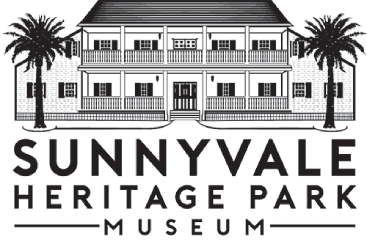One hundred years ago in January 1918, the United States had been at war for nine months. The citizens of Sunnyvale were considering two bond issues that were to be decided in a special election at the end of the month. Proposition A was to decide if the town should take on debt to buy property for a municipal park and public buildings while constructing roads, sidewalks, and planting trees. Proposition B was to decide if the town should buy a parcel of land for a fire engine house and construct it.
The war effort and what could be done at home was the topic of the day. A few months prior in 1917, President Woodrow Wilson had created the U.S. Food Administration (USFA) to manage the food reserves for the U.S. Army and allies. Although the mission was to keep troops fed, this required a massive intervention in the food habits of Americans. A popular campaign was in full force for citizens to find substitutes for foods that were high in demand, all done on a voluntary basis. Beef, pork, wheat, dairy products, and sugars were rationed and sent to soldiers abroad. The citizens of Sunnyvale were asked to do their part, and it was a matter of civic duty and a sense of pride to comply.
Above are a few snippets taken from the Sunnyvale Standard in January 1918. Unfortunately, there are no known copies of the weekly editions for February 1918 to check voter turnout and the results of the special election, but it’s likely those measures were approved.

